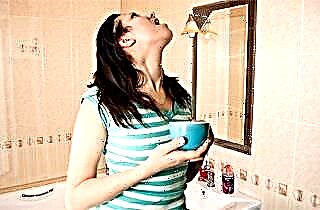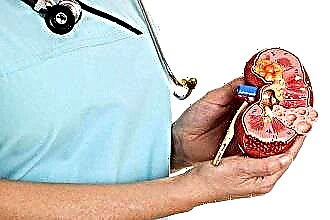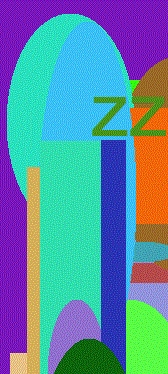Many patients who come to see me complain that their heart rate increases after eating. This phenomenon occurs during or immediately after a meal and can be observed for several seconds or minutes, less often for an hour or more. In a person with a labile nervous system, the problem causes anxiety, which triggers the adrenaline release mechanism and further increases the pulsation. Let's see if there is a connection between food intake and tachycardia, and what can be done so that the pulse does not increase after eating.
Food and heart rate: what's the connection
In most cases, frequent contractions of the myocardium are not a pathology, they are caused by violation of dietary rules, the use of certain types of products, irritation of the vagus nerve. Sometimes an increase in heart rate can be a sign of a pathological state of the myocardium, in which case the help of a specialist will be required.
Let us examine in detail what factors can provoke a rapid heartbeat after eating:
- Large portions. One of the most important principles of healthy eating is frequent and fractional meals. This allows you not to overload the stomach and normalizes metabolic processes. When a person does not eat for a long time, and then consumes more than it should be, the load on the heart also increases. To ensure the absorption and digestion of food, proper blood flow to the stomach and intestines is required. This is achieved by increasing the number of myocardial contractions.
- Consumption of easily digestible carbohydrates. When sugar is ingested, the pancreas produces more insulin to utilize it. This often leads to hypoglycemia. Since glucose is the main source of energy, in conditions of its shortage, the mechanism of release of adrenaline and thyroid hormones is triggered. They lead to increased blood pressure and increased rhythm. The same principle of the appearance of a rapid heartbeat turns on with a complete rejection of sweets.
- The autonomic fibers of the vagus nerve (vagus) are found in the stomach, esophagus, intestines, and myocardium. Large amount of food; products that cause severe irritation of the mucous membranes; flatulence or spasms of the digestive system lead to stimulation of the vagus, provoking tachycardia.
- The same mechanism can explain the increase in pulse rate when the acidic contents of the stomach are thrown into the esophagus. This happens in the presence of gastroduodenal reflux or if a person immediately takes a horizontal position after eating (even with the normal functioning of the sphincter between the esophagus and the stomach).
Compliance with a strict diet and dehydration can provoke an attack when there is a lack of potassium, magnesium, or an excess of sodium in the body. An allergic reaction to certain foods cannot be disregarded either.
What diseases to exclude
Do not forget about the pathological reasons for the increase in heart rate. In differential diagnosis, I always exclude the following diseases:
- Ischemic heart disease, cardiosclerosis, angina pectoris;
- heart defects, myocarditis;
- pulmonary insufficiency;
- dysfunction of the organs of internal secretion (thyroid gland, adrenal glands);
- vegetative-vascular dystonia (one of the most common, mythical causes of tachycardia) - we advise you to watch the video below about it;
- panic attacks, psychosis and frequent emotional overload;
- anemia.
Sometimes, tachycardia occurs while taking certain medications. These properties are possessed by cardiac glycosides, caffeine-containing agents. Indirectly, diuretics become the cause of rhythm disturbances, since they remove potassium and magnesium and change the water-salt balance.
Typical Symptoms
Normally, food intake should cause some acceleration of the heart rate, since the body needs more blood to absorb nutrients and transport them. But a significant increase in heart rate leads to discomfort and even sometimes becomes a provocateur of a heart attack. A person can feel tachycardia after eating as follows:
- pulsation in the region of the heart, in the temples, neck;
- dizziness and weakness;
- burning or pain behind the breastbone;
- panic and fear of death;
- decrease or increase in pressure.
On examination, sometimes there is increased sweating, cold extremities, pallor of the skin and blue nasolabial triangle.
Foods causing tachycardia
There are a number of substances that enter the body with food, as well as foods that cause an increase in heart rate after eating. Especially if a person has heart disease or other chronic pathologies.
These properties are possessed by:
- spicy dishes and spices;
- alcohol;
- extracts and infusions of hawthorn, ginseng, bitter orange oil;
- caffeine (found in coffee, tea, energy drinks, chocolate);
- heavy fatty foods;
- tyramine (an amino acid found in cheeses, dried or overripe fruits, jerky meats);
- theobromine (found in chocolate);
- salt and soda.
There is speculation that the rapid heartbeat immediately after a meal develops from monosodium glutamate. This food additive is a part of many semi-finished and instant products, canned food.
Expert advice
To prevent the development of tachycardia after eating, I recommend:
- eat often and little (up to 5 times a day);
- remove from the diet all foods that provoke an attack and negatively affect the digestive process;
- eat slowly and chew food thoroughly;
- quit smoking and alcohol consumption;
- use ready-made canned food, noodles and instant porridge as little as possible;
- timely treat diseases of the stomach and intestines;
- take light sedatives (valerian, motherwort);
- after a meal, stay upright for a while and move around so that the lump of food soaked in acid does not return from the stomach into the esophagus;
- exercise at home or go to the gym (a trained heart beats much more slowly, as it works more productively).
Breathing exercises, meditation practices for relaxation, yoga classes are of great benefit.
If an attack of rapid heartbeat is accompanied by shortness of breath, chest pain and fear of death, then it is necessary to provide the patient with complete rest, give a sedative and call a doctor.



